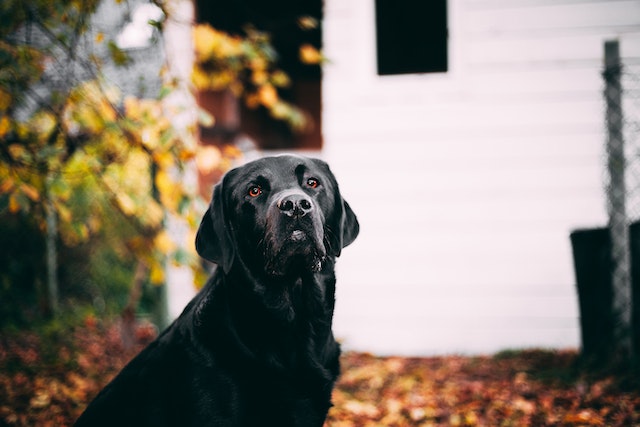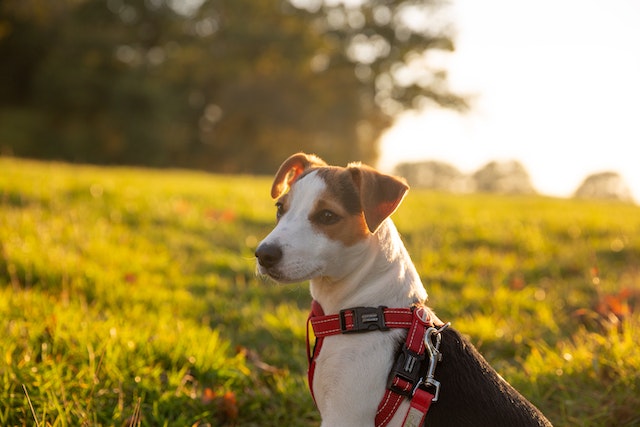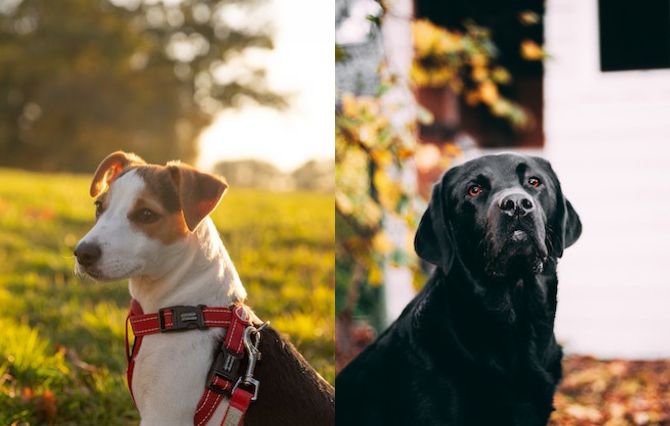The German Hunting Terrier
The German Hunting Terrier is one of the most challenging breed of dog you can keep. Their basic instinct is to hunt and chase after animals. Expending their high energy levels can be quite a task. The typical ‘butch’ dog, if there ever was, the German Hunting Terrier should be tied and kenneled in an enclosure. Any and every exercise that you make them do, need to cater to their hunting instincts, else they just won’t do it. Games like hide and seek and games of fetch and retrieve. The Hunting Terriers will retrieve just about anything as long as they can carry it.

German Hunting Terriers need to be trained very early on in their life to enforce the correct behavior when indoors and outdoors. Even if they behave inside the house, the moment they’re outside the hunting instinct takes over and they seek out things they could possibly hunt or chase. That being said, it’s advised that you introduce them other house pets in their puppyhood, to condition them.
The German Terriers like any other dogs, are eager to please their family, which makes them easy to train, providing you are firm, confident and consistent to enforce discipline and good behavior. You could train your Hunting Terrier to accompany you on long walks and jogs to help expend some of that incredible energy. Their nose is skilled to detect any and every scent, around their territory; making them excellent watchdogs who only bark for a reason.
Within a family, the German Terrier dogs tend to attach themselves to one member, though they’re just as loving with the other members. If handled well, they make excellent companions for older children. The Hunting Terriers most definitely don’t classify as lapdogs, they do make good family dogs, though they’re not well known outside of Europe.
Appearance:
- Average Height: 13-16 inches
- Average Weight: 16-22 lbs
Care & Health:
Grooming: The German Hunting Terrier requires only an occasional brushing since it doesn’t shed much.
History:
The German Hunting Terrier is a breed of the 20th century. Known by the name as “Jagdterrie” back in the Bavarian region of Germany, they were are proficient in hunting wild boars, foxes, badgers and weasels. Said to have descended from the Fox Terrier and the Tan Wire Terrier, the first German Hunting Terrier Group was formed in Germany in 1926. Recognized by the UKC in 1993, they are still not that well known outside of Europe.
The Brazilian Terrier
The Brazilian Terrier will never tire of playing with you! Completely devoted to the family, the Brazilian Terriers always have a certain spring in their step. Probably more curious than a cat, any smallest sound or slightest of movements will pique their interest. This goes well in their favour when considering a good watchdog-cum-family dog. The Brazilian Terriers will be ready to sound the alarm at the drop of a hat.

This instinct to protect their family might lead them to an extra bark or two, but it’s nothing that can’t be controlled through some training. Although an obedient and determined worker, they are known to be quite spirited, and need consistent and firm training. Not good with smaller animals, they manage to get along with other dogs their own size. To avoid any aggressive behavior when you’re entertaining, the Terrier dogs should be used to having people around. The Brazilian Terriers adapt best to older children and will prove to be a wonderful companion and guardian for them.
Appearance:
- Average Height: 14-16 inches
- Average Weight: 15-20 lbs
Care & Health:
Grooming: The Brazilian Terriers are known to shed, so although their coat as such needs an occasional brushing, you could resort to a daily routine to avoid clumps of hair all over the house.
History:
The Brazilian Terrier has been around since the brink of the 19th century. It’s said that Brazilian students studying in Europe, bought back Fox Terriers and Jack Russell Terriers who were then crossbred with the local Brazilian dogs.
The breed that resulted from the cross breeding was named Brazilian Terrier and they were trained to kill vermin, herd the flock and hunt wolves. Although they aren’t very popular outside of Brazil, they continue to be a hit in their native land.
